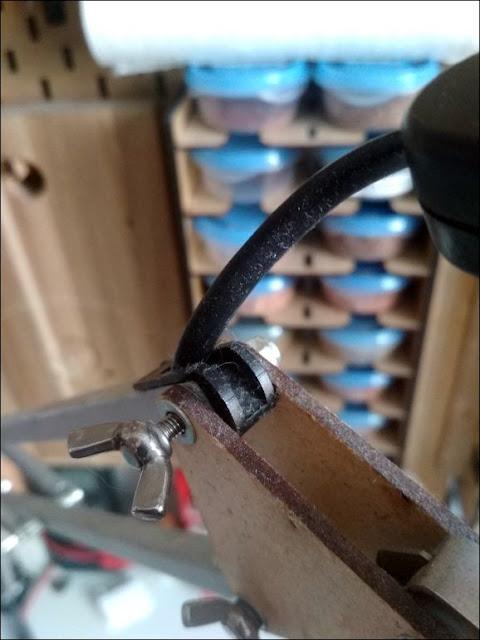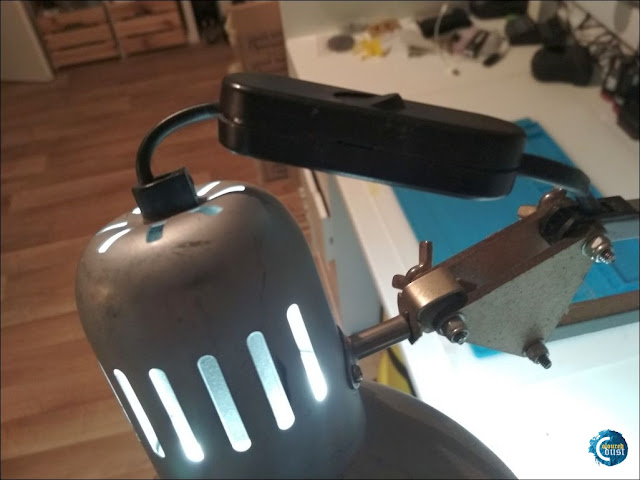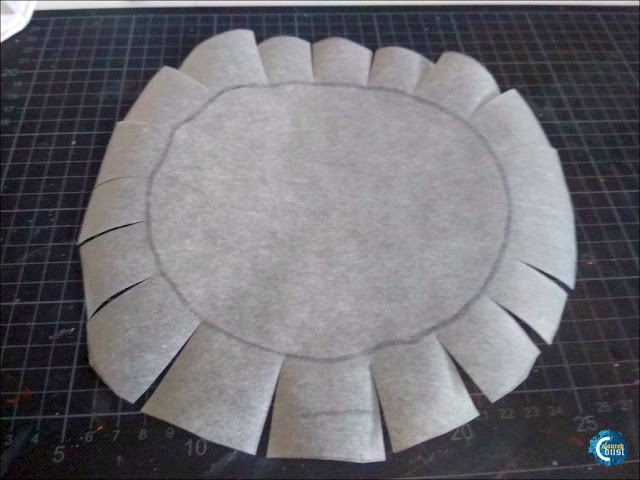This is a second part of the guest post by Auriga. Read part one first:
To jest druga część gościnnego postu napisanego przez Auriga. Przeczytaj najpierw część pierszą:
Let there be light! On inexpensive and good lighting - PART 1
Tertial - IKEA desk lamp
It would be great for our lightbulbs to be installed in a useful housing. In my opinion, the most useful lamp, for reasons I'm going to disclose later, is the Terial lamp from IKEA (or a similar one, however the last part of this article will focus specifically on Tertial lamps). Before I describe its advantages, let's move on with our small project.
We now have two Tertial lamps with two good bulbs installed. We're at 90%.
 |
| TERTIAL - IKEA desk lamp (photo from www.ikea.com) |
LAMP ARRANGEMENT
We're left with 10%. This being said, let's focus on lamp arrangement.
Tertials give us the ability to bend them closer to one another, and also further away, if you want. As far as the distance between them is concerned, you have a lot of liberty in choosing your preferred one. Mine are 140cm away from one another, measuring from the mount plate, and this is optimal for me. All that matters here is that they illuminate your work from opposing sides.
 |
| Lamp Arrangement. |
MAGNETS
We're finally at 100%
But we can go beyond that!
Tertial lamps have several interesting properties. First of all, they're made of steel, which makes them ferromagnetic. You can attach some tidbits to them with magnets. I have some small metal bowls attached, that I use for mixing oil washes, among other things.
Second, you can modify these lamps to a certain extent to further improve them. And, what's most important, it won't cost you an arm and a leg!
 |
| Small metal bowls attached to lamp. |
MODIFICATION
My lamps are modified in 4 ways. These are (in order of difficulty):1. Replacing bolts
Moje lampy są zmodyfikowane na cztery sposoby. W kolejności trudności wykonania są to:
1. Wymiana śrub
2. Przeniesienie włącznika
3. Dodanie dyfuzora
4. Wymiana przegubów (najlepiej wymienić razem ze śrubami)
Point number 1: replacing bolts
Point number 1 - the easiest one (albeit a bit fiddly) is replacing all bolts in the lamp. Note that it's best to replace them along with installing new corner brackets, but only if you know you want to have them.
One Tertial needs 8 bolts. You will need M4 wing bolts (note: wing bolts, not wing nuts). Their length matters, especially when you want to replace brackets (now or later). I'd suggest to buy at least 25mm long bolts. If you want to be extra careful - 30mm. Buy M4 locknuts alongside. One optional (however highly recommended, and necessary when replacing brackets) step are washers. I suggest 9mm washers that will allow M4 bolts.
The replacement itself is as simple as it gets. First of all, detemine which way will the bolts go, depending on where the lamp is and which your dominant hand is. Then just undo the old bolt and install a new one. With original parts, washers aren't required, but recommended. Just install a washer between any two elements. Worst case, you might need tweezers to position some washers.
This mod has two advantages. First of all, it will allow you to use your fingers to tighten the nut (though you will still need a wrench to grab the nut). Second, a locknut will make sure the connection is nice and tight for a long time.
You might be tempted to use both wing bolts and wing nuts. That was my first idea but I opted against it. If you replace locknuts with wing nuts, you won't need tools to tighten them. On the other hands, all the joints will start sagging a lot faster. I'd rather tighten the bolt "once and for all", but the decision is ultimately yours.
Point number 2: repositing the switch
The second point, in my opinion absolutely vital and one that will benefit you the most is repositioniong the switch. First of all - there's already a piece of cable sticking out behind the lampshade, which makes this place ideal for this kind of a mod. Then - who wants to reach out, and dive somewhere under the table and blindly search for the switch, if you can have it within easy reach?
Here's a disclaimer: if you don't know how to install electric switches, ask someone knowledgeable for help. Neither me, nor the owner of this blog take any responsibility for any health or property damages resulting from a faulty modification of such lamp. Any work with electricity and devices that use electricity should be done with caution, reason, all safety measures and full knowledge of steps you need to follow and tools you're going to be using.
This being said, here's a bit of bad news. For safety reasons I won't tell you how to install that mod. It's up to you to do it, taking the disclaimer I wrote into consideration.
Here's a photo of what it should look like:
One thing I can add is that it's quite helpful (necessary, if you want to replace brackets) is pulling the cable so that there's more of it behind the lampshade. Try and aim so that the total length of the cable sticking out, betwen where it leaves the shade and enters the rod, is about 18-20cm. You might want to use the dish soap trick here. Spread some dishsoap on the cable further down the lamp, where it leaves the lamp itself, and it will be easier for you to pull it behind the lampshade.
W zamian zdjęcie jak to powinno wyglądać.
Dodam jedynie, że bardzo pomocne (a przy wymianie przegubów niezbędne) jest lekkie przeciągnięcie kabla, żeby za kloszem było go nieco więcej. Celujcie tak, żeby całkowita długość kabla razem z długością przełącznika, od miejsca gdzie wychodzi ze wspornika do miejsca gdzie wchodzi w klosz miała około 18-20cm. Tutaj polecam stary sposób na mydło. Posmarujcie mydłem albo innym detergentem kabel w miejscach gdzie wystaje ze wsporników, a dużo łatwiej będzie wam wyciągnąć dodatkowe parę centymetrów za kloszem.
Point number 3: the diffuser.
There's something else you can do to soften the light. You can install a diffuser. It will break the shadows on the light. The same result can be achieved in many ways, and with different amounts of money. The main protagonist of this story is thin white paper that lets light through easily. I use parchment paper for my diffusers. There are many ways to attach it, however the easiest one involves magnets. Just trace the diameter of the lampshade on parchment paper, then draw a circle (about 4cm wider on each side) around that diameter. Then cut the whole thing out, and then make a dozen or so cuts into the circle, remembering to not cut into the diameter of the lampshade. Then, all you need is to bend the tabs in one direction, and attach the diffuser it to the lamp with magnets. The lamp heating up shouldn't be an issue here - LED bulbs hardly generate enough heat for anything bad to happen, but always be vigilant!
If you have other ideas how to attach paper to the lamp - go right ahead! My solution are two MDF rings with a paper circle sandwiched between them. One ring has magnets, so that I can attach and detach it at will.
Point number 4: bracket replacement
It's time for the last point - bracket replacement. This mod is the least necessary, as it has no visible impact on your work. It only improves the mobility of the lamp (these new brackets let you bend the lamp to be straight, horizontally and vertically.
This mod needs 3d-printed elements (unless someone has a way of cutting equivalents in wood or whatnot). If you want to install this mod, it's best to do that while replacing bolts.
Here's the link to the free stl file.
Czas przejść do punktu czwartego - wymiany przegubów. Ulepszenie to jest najmniej potrzebne, bo nie wpływa w żaden wymierny sposób na komfort pracy, pozwala za to jedynie na zwiększenie mobilności ramion (można dzięki temu wygiąć lampę idealnie do poziomu i pionu).
To ulepszenie wymaga domyślnie elementów drukowanych w 3d (no chyba, że ktoś chce sobie sam wyciąć i wywiercić w płycie). Jeśli ktoś będzie miał ochotę na tę przeróbkę, to najlepiej ją wykonać przy jednoczesnej wymianie śrub.
Tutaj link do darmowych plików .stl.
That's it. May your work lighten you up!
To by było na tyle. Niech wam świeci!
Auriga








